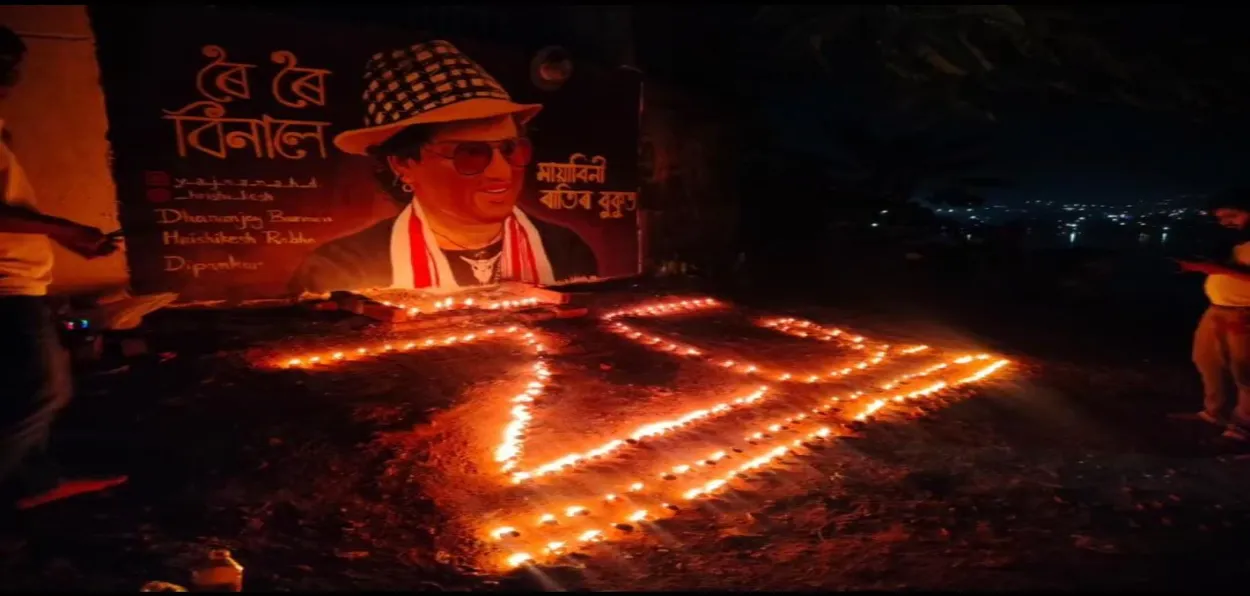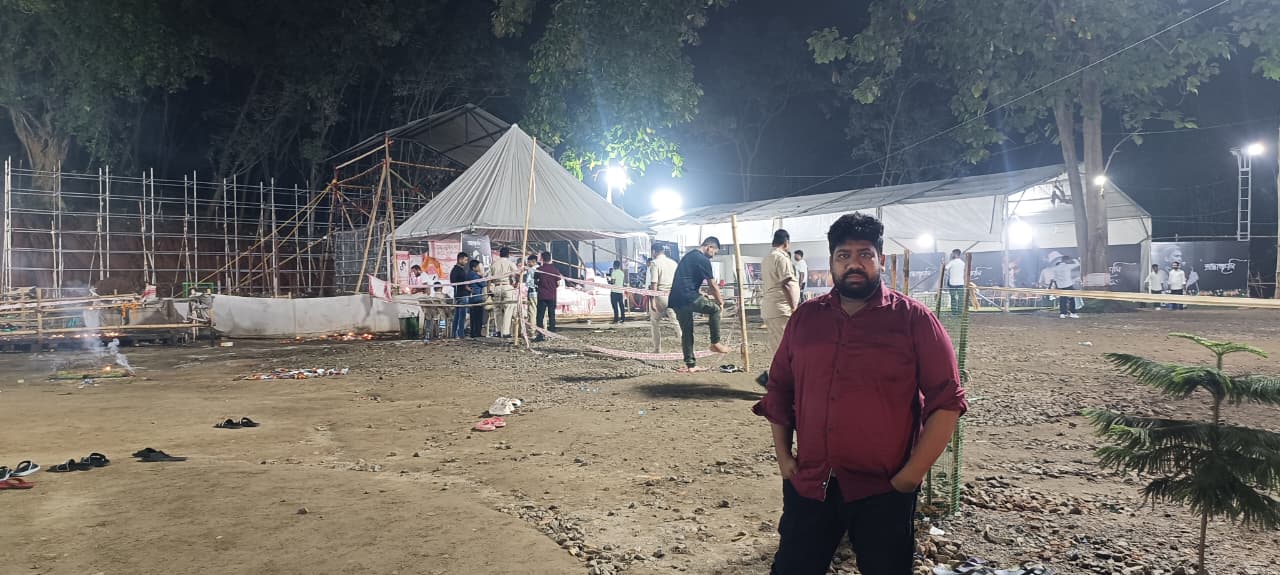
Rita Mukand
Diwali carried a sharp chill. On the surface it looked normal in Guwahati -- houses shimmered in the illuminations, families decorated banana trees and Tulsi plants with lights and lit diyas (oil lamps) around in their courtyards, the brightly lit streets carried a certain reverence and crackers sparked only sporadically. And yet, the air, usually electric with joy and festivity, seemed quieter. While the Kali Puja began, invoking the goddess of power and light, something vital was missing.
The usual cacophony of celebration has given way to silence and reflection. One month has passed since the untimely death of Zubeen Garg.
In the pre-Diwali days, from Amranga Barihat to Kamarkuchi, massive rallies to pay tribute to the legendary singer swept across the state. Songs, slogans, and candlelight vigils filled the days and nights following his passing. His songs pour from speakers and car radios. On Diwali night, millions lit diyas for Zubeen Garg. It was quite a common sight to walk down the streets of Guwahati to find little shrines around corners, with his pictures, while fans huddled around, lighting diyas and offering prayers for him.
With glowing oil lamps, prayers, and songs, something sacred stirs – crowds camp at Zubeen Garg’s resting place at Kamar Kuchi in Sonapur, 20 kilometers from Guwahati. The place has evolved into a sacred shrine for thousands of fans who lit candles, offered flowers, and traditional offerings like gamosas and xarai. The site developed pathways, with the flow of visitors, now called Zubeen Dham.
 Abdullah Siddique Choudhary of USTM at Zubeen Garg's samadhi at Sonepur
Abdullah Siddique Choudhary of USTM at Zubeen Garg's samadhi at Sonepur
On the evening of October 19th, 200 flutists gathered at Zubeen Garg’s Samadhi in Sonapur, with the rendition of Mayabini Ratir Bukut filling the air with magic and tears.
In Guwahati, festivities turned into tributes. The Vivekananda Sporting Club at Colony Bazar, Kalapahar, hosting its 61st Kali Puja, has dedicated the event to Zubeen’s memory. Their ₹15 lakh pandal, themed around Lord Shiva, featured no cultural performances, only devotional observances. Other clubs, such as Dynamo Club in Ulubari and the Kali Puja committee in Pandu, followed suit.
Even as markets bustle with Diwali shoppers picking up diyas, rangolis, and sweets, there is an underlying sadness. Amid the chants and flickers of flame, there’s prayer.
Amid all the grieving, there are also Assamese who feel this “sentimentality” is going too far. Some shopkeepers report getting poor sales, remarking that life must go on. One girl stated, “Oh, and people still can't move on after a month. I hope this Diwali brings joy after this dark phase of the land.”
.jpg) Guwahati on Diwali night
Guwahati on Diwali nightAt the University of Science and Technology Meghalaya, where Zubeen received an honorary doctorate in 2024 for his contributions to music, culture, and social work, the sorrow is deeply personal. Unlike last Diwali, which was sparkling alive, this year looked damp. Abdullah Siddique Choudhury, a senior USTM officer, who visited Sonapur days earlier, shared his emotions with Awaz–The Voice, “Diwali is one of the most joyful festivals in our country. Every year, I celebrate it with friends and neighbours. But this year, the rays of the diyas carry pain. This year, our gathering is not for celebration, but for justice.”
He went on to say, “Dr. Zubeen Garg was more than an artist; he was an emotion, a force that touched millions. His songs reflected the soul of Assam. Even as we light our diyas, a deep silence lingers in our hearts. This Diwali, we won’t celebrate with firecrackers. We will remember his voice, his courage, and his boundless love for our people. He will always live in our hearts. His music will shine like Diwali lights - eternal and undimmed.”
The sentiment is shared across Assam and even beyond, across the borders. In neighbouring Meghalaya, the Ri-Bhoi district is unusually hushed. The melodies of Zubeen’s voice drift from shops and homes. Buses and jeeps stream toward Sonapur - the place where he now rests, but also where a movement has begun. Some even whisper that Zubeen was like a god, a bold revolutionary who spoke his mind and stood beside rickshaw pullers, night guards, and tea workers, listening, sharing wisdom, and giving.
ALSO READ: Diwali lights have a universal appeal, and symbolism
On social media, over 2 million voices chant a single demand: #JusticeForZubeen. The air is heavy with anticipation as investigations continue into the circumstances surrounding his death. For the first time in years, people across caste, class, and faith stand together, bonded by grief and purpose.
